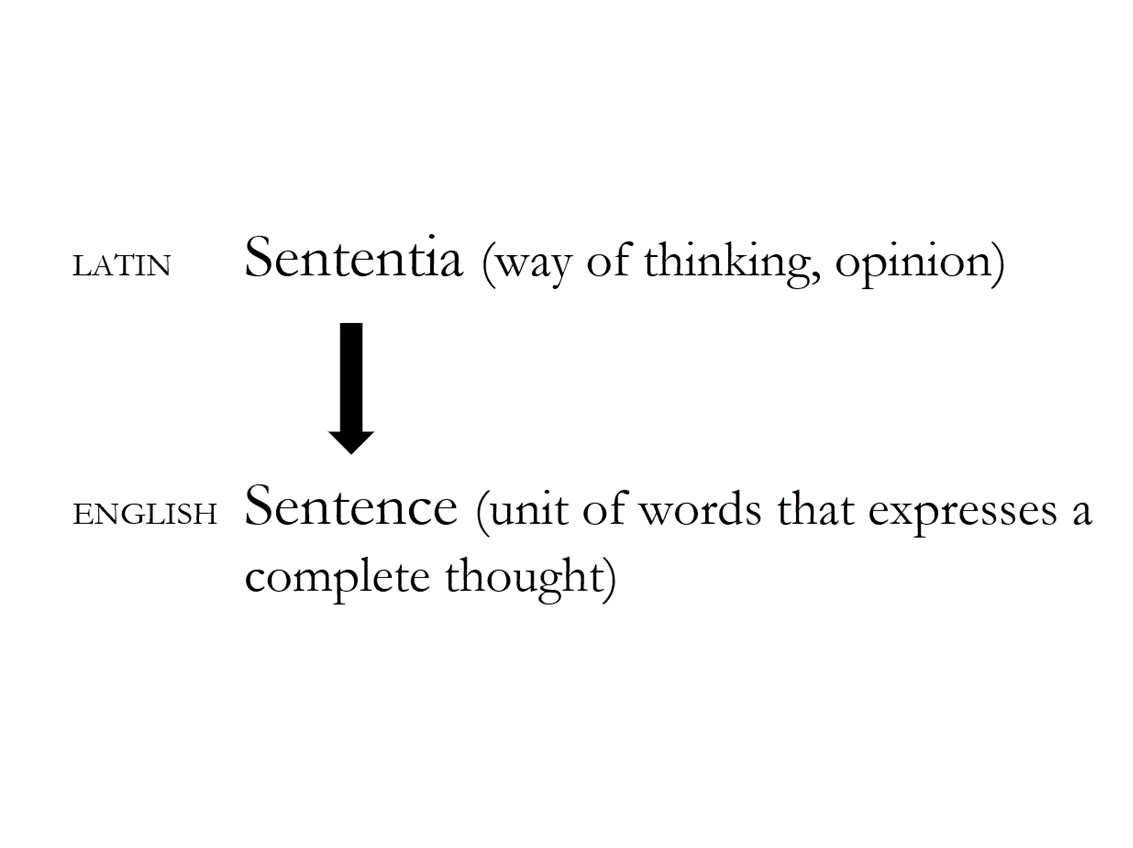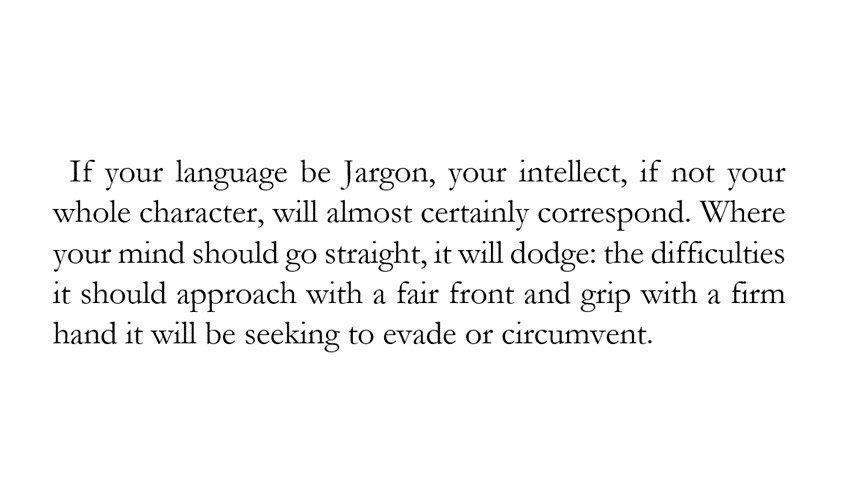
Sentence comes from the Latin word sententia, which means "way of thinking."
To write a sentence is, by definition, to think.
So if you can't write well, you can't think well either, and somebody else might just do the thinking for you...
To write a sentence is, by definition, to think.
So if you can't write well, you can't think well either, and somebody else might just do the thinking for you...

A sentence is a unit of words which expresses a complete thought. Grammatical rules exist to give that thought order and make it understandable.
The point here is that writing is, definitionally, a form of thinking.
The point here is that writing is, definitionally, a form of thinking.
And it's a *better* way of thinking.
Mental thoughts are intangible, ever-changing, and hard to control. They can appear and disappear seemingly at random. You forget things and you get distracted.
It's *really* hard to build up a consistent, coherent train of thought.
Mental thoughts are intangible, ever-changing, and hard to control. They can appear and disappear seemingly at random. You forget things and you get distracted.
It's *really* hard to build up a consistent, coherent train of thought.
But writing commits those thoughts in your head to paper (or screen).
It brings them into the world to be examined, understood, edited, and improved.
Thus enabling you to formulate clear, coherent, considered thoughts. You'll learn what you actually think.
It brings them into the world to be examined, understood, edited, and improved.
Thus enabling you to formulate clear, coherent, considered thoughts. You'll learn what you actually think.
George Orwell expressed the importance of writing better than anyone:
"If people cannot write well, they cannot think well, and if they cannot think well, others will do their thinking for them."
Simple.
"If people cannot write well, they cannot think well, and if they cannot think well, others will do their thinking for them."
Simple.
His greatest concern was the use of *other people's words*, such as a particular way of explaining a concept or idea.
Because words are thoughts, remember. So when you write with other people's words, you'll end up thinking their thoughts too.
Because words are thoughts, remember. So when you write with other people's words, you'll end up thinking their thoughts too.
Orwell's brilliant (and highly recommended) essay Politics and the English Language was published in 1947.
Thirty years before that a literary critic called Arthur Quiller-Couch wrote a treatise called On the Art of Writing.
Thirty years before that a literary critic called Arthur Quiller-Couch wrote a treatise called On the Art of Writing.
In it, Quiller-Couch picked up on the same problem identified by Orwell. He called this imitated language Jargon.
"Where your mind should go straight, it will dodge" - a damming indictment of poor writing and how it corrupts your ability to think clearly.
"Where your mind should go straight, it will dodge" - a damming indictment of poor writing and how it corrupts your ability to think clearly.

Here's something else Quiller-Couch wrote:
"No two people (unless they talk Jargon) say the same thing in the same way."
Think on that.
"No two people (unless they talk Jargon) say the same thing in the same way."
Think on that.
Writing is thinking, and so we should learn to do it well.
Because if you're not careful, every time you write something down you'll be writing another person's thoughts without even realising it.
Remember: your sentences are, by definition, thoughts. Make sure they're yours.
Because if you're not careful, every time you write something down you'll be writing another person's thoughts without even realising it.
Remember: your sentences are, by definition, thoughts. Make sure they're yours.
• • •
Missing some Tweet in this thread? You can try to
force a refresh
















